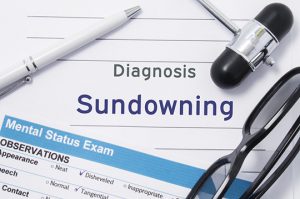“Am I too old to become a nurse?” We hear that a lot here at Nurse Plus. The good news: NO! It’s never too late to follow your dream or reinvent yourself. Remember the Chinese proverb: “The best time to plant a tree was 20 years ago. The second best time is now.”
You’re reading one of our “Nursing Career Guide” articles. Need to practice for your upcoming exam? Have a look at our free NCLEX practice questions -- no registration required! ✨
There is no official age limit to becoming a nurse. People in their thirties, forties, fifties—and beyond--are applying to nursing school…and being accepted. Donna Cardillo, MA, RN, is an inspirational speaker and columnist. She writes that she knew a 70-year-old who became a nursing student! (Read more: How to Become a Registered Nurse)
There are many reasons to consider entering nursing school as an older adult
There are plenty of reasons to think about becoming a nurse. Some go back to childhood and the “Cherry Ames” nurse mysteries. Others are pragmatic, based on analysis of the employment outlook. Some common reasons to go to nursing school as an adult:
- Your children are older and now you’re able to spend time taking classes to achieve your personal goal.
- Income from a nursing career can help pay for a mortgage, vacations, and college tuition.
- You always wanted to be a nurse, but circumstances got in the way and you had to set your dream aside.
- A career change that provides a steady job, good benefits, and excellent pay seems like a wise move.
- You like the idea of helping others and making a difference in people’s lives.
- Nursing offers a wide range of opportunities, with the ability to switch work settings and specialties.
- You can be a nurse anywhere, with a choice of schedules and shifts. Part-time positions and flexibility allow you to balance personal and professional goals.
(Read more: How Much Do Nurses Make?)
BONUS: You have advantages as an adult student
Adults who enter college and nursing school do well, often better than younger students just out of high school. Your life experience and wisdom give you an edge. Research shows that mature students excel because:
- You’re motivated. Adult students attend school with a purpose and on a timeline. You already have a busy life, so you want to get an education without wasting time or money.
- You know how to prioritize. One of the most challenging lessons for new nurses is learning how to determine what must be done first, second, or third. Adults are adept at this and know that procrastination is never a good idea.
- You can focus on your studies. Young students can be distracted by going out with friends, figuring out time management, and acquiring important life skills. You are miles ahead in all these areas, so your energy is directed at successfully meeting your goal.
- You have wisdom. Give yourself full credit for the experience and perspective you have earned over the years. Chances are that you know how to negotiate, how to look at the big picture, and how to understand others. You also know yourself and what you want from life.
- You accept challenges. Adults are accustomed to the ups and downs of life. You know that some things are difficult, but that you can usually maneuver your way to a solution. You can also determine when a problem is major or just a bump in the road.
- You enjoy learning. Unlike younger students, who view school as drudgery, you know you’re getting valuable information and that it’s going to serve you well. You pay attention, take notes, and really study. You’re glad to be in class, because it means a new career is on the horizon.
Worried about being “too old”? Don’t be!
You will dismiss any doubts about being “too old” to go to school when we tell you that nursing students tend to be older than typical college students:
- The average age of ADN nursing students at community colleges is 26-40 years old.
- BSN programs have an average age of early-mid 20s.
- Students in RN-to-BSN programs are typically in their late 30s.
The National League of Nurses does a Biennial Survey of Nursing Schools, with a breakdown of student enrollments by age and program type. No matter your age, you won’t be the only one in your class. Here are some interesting findings from the 2018 survey:
ADN (2-year Associate Degree) Programs: 62.1% are over the age of 25!
Ages:
26-30: 26.4%
31-40: 24.6%
41-50: 9%
Over 50: 2.1%
Diploma (2-3 year RN) Programs: 52.7% are over the age of 25!
Ages:
26-30: 27.8%
31-40: 17.2%
41-50: 6.6%
Over 50: 1.1%
LPN/LVN (1-year PN/VN) Programs: 62.5% are over the age of 25!
Ages:
26-30: 27.9%
31-40: 22.7%
41-50: 9.1%
Over 50: 2.8%
BSN (4-year Bachelor’s Degree) Programs: 22.9% are over the age of 25!
Ages:
26-30: 12.6%
31-40: 7.4%
41-50: 2.5%
Over 50: 0.4%
Older nursing students tend to choose schools with shorter time commitments, probably due to other life obligations and financial constraints. Community colleges also have lower tuition rates and are closer to students’ homes. (Read more: How Long is Nursing School?)
What if I don’t have the stamina to work as a full-time hospital nurse?
Remember that your options for a nursing position are vast. First, you’ll discover that there’s a particular niche that appeals to you. From “cradle to grave,” nurses are needed in every specialty and sub-specialty of healthcare.
Acute care, such as a hospital or medical center, is fast-paced and demanding. Even within acute care, nursing positions have different levels of demand. Emergency Department and Critical Care Units require more adrenaline than Pre-operative Screening. If you know that a hospital is not your style, you can choose to work in a clinic, assisted-care facility, out-patient surgery center, or insurance company. Telehealth nursing is a new emerging specialty that can be done remotely.
Second, you’ll learn that in your favorite area of nursing, there are a variety of sub-specialties that are appealing and outside the acute care setting. For example, a medical nurse can branch into hospice or home health. A mental health nurse can specialize in dementia care. A nurse who loves technology can become an informatics specialist. Nurses who need a regular work schedule may prefer to work in quality improvement and compliance. The possibilities are practically endless!
Doing it as a second career is a thing
The average age of employed RNs is 50, so you won’t only be working with nurses who have barely reached the drinking age. AARP states that second careers after age 50 is part of “older age revolution.” One study shows that 40 percent of people working at age 62 had changed careers after they turned 55.
An article in a Midwestern newspaper, The Pantagraph, “Older school: Nursing programs drawing students over age 40,” describes the trend of returning to college for a nursing degree. Heartland Community College, in Normal, Illinois, offers a nursing program for non-traditional students, those who don’t begin college straight out of high school.
One student, John Cook, said at age 47, “I thought I’d be the oldest one by far, and that’s not the case…it’s a huge cross-section of people with degrees in other fields, including a lot of moms.”
AARP features Robert McManus, 63, who made the switch from a hazardous waste manager to Registered Nurse. His advice: “Don’t underestimate how many skills from your previous work, like problem-solving, are transferable.”
Another second-career nurse, Bob Evans, attended nursing school in Texas when he was in his late 50s, after spending 30 years in the horticulture industry. After graduation, he decided to work in a telemetry unit. He has earned a DAISY Award, given “to honor the super-human work nurses do for patients and families every day.”
The demand for these professionals is growing, so don’t hesitate
The Bureau of Labor Statistics (BLS) projects a 7% growth rate from 2019 to 2029, faster than the average for all occupations. There are several reasons more nurses are needed:
- The population is aging. Elderly people have more chronic medical conditions, and simply require more care and education.
- Healthcare costs in acute settings are skyrocketing. Health care providers discharge patients as soon as possible, often to other settings, such as rehabilitation, long-term facilities, and outpatient clinics.
- Home health, including palliative and hospice care, is growing.
- One-day/same-day care centers will continue to expand. Patients will receive services like chemotherapy, surgery, and rehabilitation.
- More procedures and diagnostic studies are being performed in clinics and physician practices.
- Telehealth and remote consultations are necessary to keep patients safe from infectious environments.
Over 221,000 more nurses will be needed by 2029. Depending on geographic area and work setting, nurses can earn good salaries and benefits. According to BLS, 2019 earnings average:
| Government | $79,790 |
| Hospitals; state, local, and private | 75,030 |
| Ambulatory healthcare services | 70,330 |
| Nursing and residential care facilities | 66,250 |
| Educational services; state, local, and private | 63,690 |
What are you waiting for?
Whether you want to finally fulfill a dream, or launch a new career, there’s no time like today to get started. Yes, you may be nervous about returning to school, but the reward of becoming a licensed nurse is worth it.
One more benefit: You’ll be a role model and inspiration for others, as well as proof that age isn’t a barrier to success. As Richard J. Leider said, “The trouble is, when a number—your age—becomes your identity, you’ve given away your power to choose your future.” Keep your power—and become a nurse!
 By
By 



